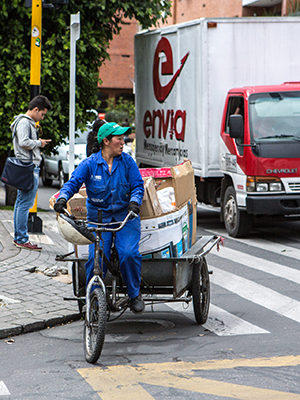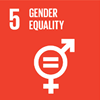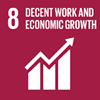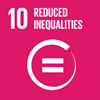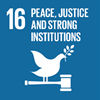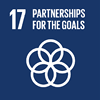Transforming economies, states, and societies
At its core, development is about the well-being of people. But it is also about creating societies which provide fundamental rights and just social political outcomes. Sustainable and inclusive development requires transformative changes across three fundamental areas: in the structures of economies, in the state, and institutions that govern social and market interactions and broader developmental processes, and in society itself. These transformations are central to the achievement of the United Nations’ 2030 Agenda for Sustainable Development and the Sustainable Development Goals (SDGs).
The 2019–23 UNU-WIDER work programme focuses on the interlinked development challenges of transforming economies, states, and societies and maps them against SDGs 5, 8, 10, 16, 17. By mobilizing research evidence for action through the ongoing processes in the UN and its member states, the institute continues to work with stakeholders to strengthen capacities for research, technical, and policy analysis, and facilitate exchange of experiences and knowledge towards bold and collaborative development solutions for countries and regions around the world.
Click on the table below to explore our current work or scroll down to search past projects.
13 active and previous projects
Filter by...
2000-01
Refugees, international migration and povertyFleeing poverty, violence and 'ethnic cleansing' millions of people leave their homes every year in search of safety and economic opportunities. In contrast to the migrations of the nineteenth century today's migrations often take place through...
2000-01
Growth and poverty conferenceConferences: 25 May 2001 WIDER Development Conference on Growth and Poverty
2000-01
Debt relief conferenceConferences: 17 August 2001 WIDER Development Conference on Debt Relief
2000-01
Globalization and the obstacles to the successful integration of small vulnerable economiesA key challenge for policy makers is how to bring about the successful integration of the less developed countries into the international system. Many of the obstacles to the meaningful participation of vulnerable developing economies in the...
2000-01
Insurance against povertyHouseholds in developing countries face many risks. Informal insurance mechanisms (marriage, the extended family, and investment in social capital) provide some protection but are weak in the face of major calamities that affect households en masse...
2000-01
Micro-simulation of tax benefit reforms in russiaMicro-simulation models play an important role in policy analysis in developed economies, particularly in connection with the distributional impact of tax and benefit reforms. The objective is to show how the changes affect different households in...
2000-01
The impact of privatization and regulation of utilities and social services in Latin AmericaLatin America has now privatised a large number of utilities (water, electricity, transport, and telecommunications) and now makes more use of market approaches to delivery in the social sectors (education and health). Privatisation has major...
2000-01
Information technology and global economic developmentProject Meetings: 12 January 2001 Project meeting: The New Economy in a Global Perspective Conferences: 10 May 2002 WIDER Development Conference on New Economy in Development
2000-01
Capital flows to developing countries since the Asian crisis - how to manage their volatility?The project intends to fill the gaps in knowledge in two related areas: 1) what determines decisions by lenders/investors to enter or withdraw from individual developing countries? 2) what are the policy implications for macroeconomic and financial...
2000-01
New fiscal policies for growth and poverty reductionMany developing countries are characterised by weak budgetary and revenue institutions, insufficient public spending on priority investments and the macro-economic instability associated with repeated fiscal crises. Moreover, the recent external...
2000-01
Property rights regimes, microeconomic incentives, and developmentA property rights regime covers rights to use, lease, donate, bequest, and sell assets or collect the incomes generated by assets. A clear and transparent property rights regime facilitates investment and economic growth. While private property is...
2000-01
Why some countries avoid conflicts while others failPrevious UNU-WIDER research has shown that the risk of internal conflict is high in low-income societies rich in natural resources and characterised by ethnic fragmentation. Yet for each country in conflict there are many others with similar...
2000-01
Institutional capabilities, reform ownership and development in SSAPast policies, an erroneous approach to adjustment, and 'geography' are repeatedly cited as explanations for Africa's poor performance. But, weaknesses in the institutional capacity of the African State may be as important. In particular, economic...
 Join the network
Join the network